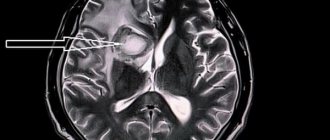From this article you will learn:
- What is dementia
- What are its symptoms and manifestations
- How to care for someone with dementia
- How does home care for a person with dementia differ from care in a boarding house?
Dementia is an incurable disease that can develop over a long period of time. It changes the life of both the patient and his loved ones. People who suffer from this disease need constant supervision. This places not only an emotional and physical burden on the caregiver, but also a financial one.
Caring for people with dementia usually involves protecting and ensuring their comfort. Often such care is perceived by the patient with aggression and disapproval, since the disease destroys his memory and changes his perception of the world, which does not always allow a person to consciously react to people close to them.
What is dementia
As a result of a malfunction of higher nervous activity, in addition to memory, dementia reduces a person’s ability to learn and contributes to the loss of many knowledge and skills that he acquired during his life.
Elderly people often suffer from forgetfulness, which does not always signal the presence of a more serious illness. But like memory problems, the development of dementia can be caused by numerous factors that affect the brain and nervous system. These include: alcohol or drug use, head injuries, tumors, atherosclerosis, meningitis, Parkinson's disease, encephalitis, Alzheimer's disease and others. Read material on the topic: Mixed dementia - causes, features of diagnosis and treatment
Treating specialist
A family doctor or internist is the first doctor patients see when they experience signs of dementia. A good general practitioner must have experience working with neurological pathologies in order to promptly notice the slightest deviations in the psyche of his patients. If disturbing symptoms occur, the family doctor will refer the patient for consultation with a neurologist, psychiatrist or geriatrician.
Neurologists are specialists in dementia. They can determine the patient’s neurological status, the presence of organic disorders, and severe damage to the central nervous system. The neurologist will prescribe additional diagnostic procedures to determine the causes of the pathology and prescribe its effective therapy.
A neurologist will determine whether the cause of dementia is a complicated somatic disease that affects internal organs in the body, or an infectious process. If so, then treatment for these diseases is first prescribed, and only then treatment for signs of dementia is prescribed.
If dementia occurs against the background of various brain tumors, this will require surgical intervention. Neurosurgeons first remove the tumor, and after that, rehabilitation and restorative therapy is carried out, designed to slow the progression of dementia.
With further progression of dementia and mental disorders against this background, a psychiatrist treats the patient. He is able to determine the slightest changes in the patient’s psyche, conduct a clinical and psychological personal assessment of the patient and identify the stage of severity of cognitive impairment.
If the impairment is significant, the patient is treated in a psychiatric hospital.
It is the psychiatrist who prescribes the antipsychotic medications that patients with dementia need. He prescribes the dosage, course duration, and helps replace medications in case of intolerance or addiction.
An elderly patient with dementia may be seen by a geriatrician - a doctor who deals with diseases that are characteristic of old age. A geriatrician also understands diseases of the central nervous system in older people and can prescribe the necessary therapy. Those grandparents who, in addition to dementia, have many other diseases associated with age-related changes in the body usually consult a geriatrician.
Causes of senile dementia
As we have already mentioned, older people are susceptible to senile dementia, or dementia, which is directly related to a disorder in the cognitive function of the brain. Not all aspects of the occurrence of this disease are clear, but the following main reasons are identified:
- Atrophy of brain tissue due to a failure of the metabolic process and lack of oxygen, all its resources are lost in this situation.
- Diseases of the cardiovascular system, as a result of which degenerative changes occur (neurons die), which is why dementia is considered incurable.
- Infectious diseases, cancer. They may also underlie senile dementia.
Read the material on the topic: Senile dementia is an enemy that can be successfully fought
Patient hygiene
Caring for a patient with dementia necessarily involves monitoring his compliance with personal hygiene rules. Emerging mental features in this disease contribute to the patient’s disdainful attitude towards these functions.
It is imperative to monitor daily how thoroughly the patient washes his hands, genitals, brushes his teeth, and whether he does this at all. In this case, observation should be extremely delicate, since many sick people can painfully perceive the presence of another person in the bathroom and demand to leave him alone out of self-esteem.
Clinical manifestations of dementia
Senile dementia develops gradually, completely unnoticed at first. Dementia is most pronounced in those who suffer from atherosclerosis of the cerebral and coronary vessels and arterial hypertension. As a rule, the deterioration of the situation is facilitated by strokes, after which changes in memory, thinking and behavior are noticeable. The main causes of senile dementia are considered to be Alzheimer's disease and vascular dementia. The first symptom of developing dementia is a slowdown in a person's thought processes. This is expressed in the fact that solving any problems, even the simplest ones, for example, household ones, takes more than the allotted time, and the ability to think quickly and concentrate is reduced.
The character and behavior of a person at the initial stage of development of dementia changes for the worse.
Rudeness, stubbornness, and excessive straightforwardness appear. Such symptoms are attributed to the “selfishness of old age,” since the patient does not notice these changes and believes that this is normal. Forewarned is forearmed. A greater effect will be achieved if dementia prevention is started as early as possible. Properly selected treatment will help slow down destructive processes. Read the material on the topic: Alzheimer's disease
How to be treated
The earlier therapy is started, the better. It is important to take into account that the treatment must be prescribed by a doctor; there should be no amateur activity. Today, neurologists and psychiatrists are involved in selecting therapy. There are several groups of drugs that can slow down the development of dementia. There is no cure for dementia, but it is quite possible to slow down the process by several years if treatment is started in the early stages. Think about it - a few years for an elderly person and his family is not short at all.
In the case of concomitant behavioral disorders - psychotic disorders, insomnia, psychomotor agitation, psychiatrists prescribe additional therapy that stops such manifestations of the disease, but it is important that specific therapy for dementia, started in the early stages, can reduce the degree of such manifestations or completely prevent them.
Caring for people with dementia at home
Caring for people with dementia at home is a complex and time-consuming task. Trustees usually become close relatives: spouse, children. The choice depends on the gender of the patient, as well as on which of them has the best living conditions and financial situation. Often the daughters or daughters-in-law of the sick become guardians. Caring for patients with dementia is a huge amount of work associated with extreme stress for all loved ones, which is why the term “caring burden” is recognized internationally and includes not only emotional and physical stress, but also the financial costs of the caregiver. A person caring for someone with dementia must ensure that their physical health and well-being are not neglected. The illness of a loved one can destroy the usual structure of the family and lead to chronic fatigue of its members, their emotional burnout, feelings of guilt and indignation.
- A properly organized daily routine should become an important part of the patient’s life. At the same time, it would be good to retain at least some activities related to the person’s past, habitual life. Organization and orderliness will make him feel protected and confident.
- Promote greater independence for the patient. This will make your job easier and help maintain the patient's self-respect.
- Do not forget that the patient, under any circumstances, remains a person who can be hurt by a careless word or deed. Help in maintaining self-esteem is an important aspect of care and attitude towards the patient. Treat him condescendingly; it is unacceptable to discuss his condition in front of him.
- Do not conflict with the patient. Quarrels will only cause unnecessary tension for you and the patient. You need to remain calm in any situation, always remember that it is not the person who is to blame, but his illness.
- The patient should always be busy with something. Give him simple tasks. Difficult ones can cause stress and worsen the patient's condition.
- The busier the patient is, the better. You must create situations in which the patient can demonstrate his skills and abilities. Constant employment gives his life meaning and increases self-esteem. But be careful, as the disease progresses every day, which means the abilities of your ward are changing. In this case, you just need to change the nature of the activities so as not to cause his irritation and anger.
- Think about how to make the patient's stay in the home safe. Due to such manifestations of the disease as memory loss and impaired coordination of movements, the risk of injury to the patient increases.
- Make life comfortable for someone with dementia. Have his vision and hearing checked and, if necessary, order a hearing aid or stronger glasses. This will help the person communicate with you or the service staff. This way he won't feel socially isolated.
Bathing and personal hygiene
A person suffering from dementia may forget to wash their face or not remember how to do it. Gently offer him your help, so that the patient manages to maintain his self-esteem.
- When washing, try to adhere to the way the patient is used to doing it.
- Help him relax, make this process enjoyable for the patient.
- Before the procedure, be sure to find out what exactly the patient prefers: take a bath or wash in the shower. Unusual actions may bother him.
- If you cannot persuade the patient to swim at the moment, just wait until he changes his mind.
- Give the patient the opportunity to do everything he can on his own.
- If the patient does not want to completely undress, meet him halfway and leave certain areas of the body covered.
- Make the patient's bathing as safe as possible: securely secure handles that you can hold on to, place an anti-slip mat, and additionally place a chair.
- If you feel uncomfortable or find it difficult to bathe a patient, ask someone for help.
- Recommended articles to read:
- Social services for older people
- Diseases of old age
- Valuable tips on how to choose a boarding house
Dressing
Often people with dementia forget how to dress and why it should be done. In addition, they may dress inappropriately.
- Arrange your client's clothes so that they wear them in a certain order.
- It is advisable to choose clothes without fasteners; it is better if they have Velcro or a zipper.
- Encourage the patient's attempts to dress themselves.
- Choose comfortable, loose-fitting, non-slip (preferably rubber-soled) shoes.
Toileting and incontinence
Patients with dementia may forget what it means to “go to the toilet” and stop feeling when to do it.
- Praise the patient for going to the toilet.
- Develop a toilet routine.
- Highlight the toilet door with bright colored letters.
- Keep the toilet door open to make it easier for the patient to find it.
- Clothes should be easy to remove.
- Limit fluids at night within reasonable limits.
- Place the chamber pot close to the bed.
- When the need arises, use diapers.
Nutrition and cooking
Even eating can be a very difficult process for someone with dementia. Often you have to feed him, because the patient simply forgets how to use cutlery.
- Every time, tell the patient that it is time to eat.
- Feed him something that is easy to handle.
- Cut food into small pieces to make it easier for the patient to swallow and prevent choking. In the later stages of the disease, feed him liquid food.
- Make sure that the food is warm, as sometimes patients cease to distinguish between cold and hot.
- During each meal, remind them to eat slowly.
- Do not offer more than one serving to the patient.
- Sometimes patients forget how to swallow; consult a doctor, he will tell you about techniques for stimulating this process.
- A patient suffering from dementia must eat well. But in the later stages of the disease, he may forget how to prepare food. This is an even more serious problem if the patient lives alone. Poor coordination of movements also leads to injury: a person can cut himself or get burned. Therefore, you, as a guardian, must provide him with ready-made meals.
Read material on the topic: Nutrition in old age: the most important recommendations
Poor sleep of the patient
Another challenge of caring for someone with dementia is that they may not sleep at night. What can be done in this case?
- Do not allow the patient to sleep during the day.
- Make exercise and daily walks mandatory and regular.
- Make sure that the patient feels comfortable when going to bed.
Complaints about lost items
- The patient often forgets where he put this or that item, so he can easily accuse you of theft. To avoid such situations, check if your ward has a secluded place where he puts his clothes or personal items.
- Make it a rule to keep a bunch of keys or glasses in reserve.
- Check your trash can before you throw it away.
- Never get irritated in response to patient accusations, be calm and reasonable. Agree that a lost item must be found.
Vagrancy
Often people with dementia develop a tendency to wander; they may wander away or go far from home or get lost. Therefore, the guardian’s task is to ensure that the ward always has a passport or other document with him that will help determine his identity.
- The patient must have a note with him with an address and telephone number for contacting relatives or a guardian.
- Keep the patient's home safe by locking doors and windows to ensure that your patient does not leave without your knowledge.
- If the patient does get lost, do not show your emotions, be calm, when they find him, support him.
- Always have a photo of your ward with you in case you need it when searching for him.
- Attach unbreakable mirrors to the doors of your apartment or house: your own reflection will distract the patient from the desire to open the door.
Aggressive behavior
The reasons for this behavior of the patient may be:
- Stress from mental or physical exertion.
- Despair from the fact that others do not understand or do not want to understand his desires.
- The likelihood of another disease.
Read material on the topic: Senile insanity
What to do with a dementia person
When planning the leisure and everyday life of people with dementia, it is necessary to create conditions in which patients can demonstrate their abilities to the maximum. All classes are carefully thought out in advance and structured in such a way as to maximize the patient’s self-esteem and restore his self-esteem.
Being busy with everyday household chores helps make a person feel important and needed by the family. However, it is important to remember that with Alzheimer’s disease, the patient’s consciousness constantly shifts for the worse, so when assigning household chores to him, it is important to take into account his daily state and in no case irritate or overload him.
It is important to support the patient's past hobbies. If a person has previously drawn beautifully, you can resort to art therapy in everyday life by asking him to draw some kind of pleasant subject. At the same time, the patient must be praised for any result, since the most important thing in this activity is not it, but the process itself, in which a person can concentrate, structure his own sequence of actions, and come to a specific result. This has a great effect on both the emotional sphere and brain activity.










